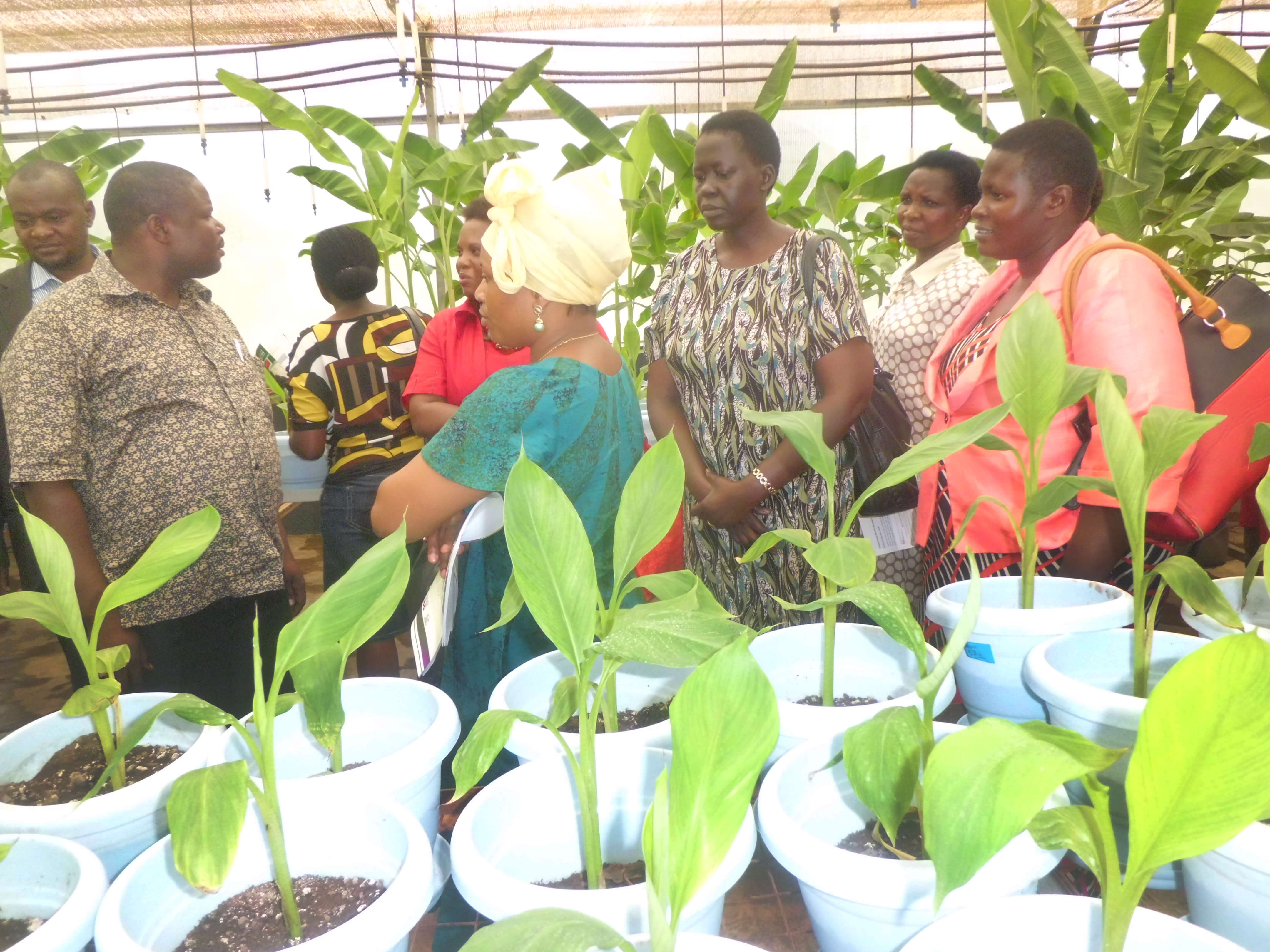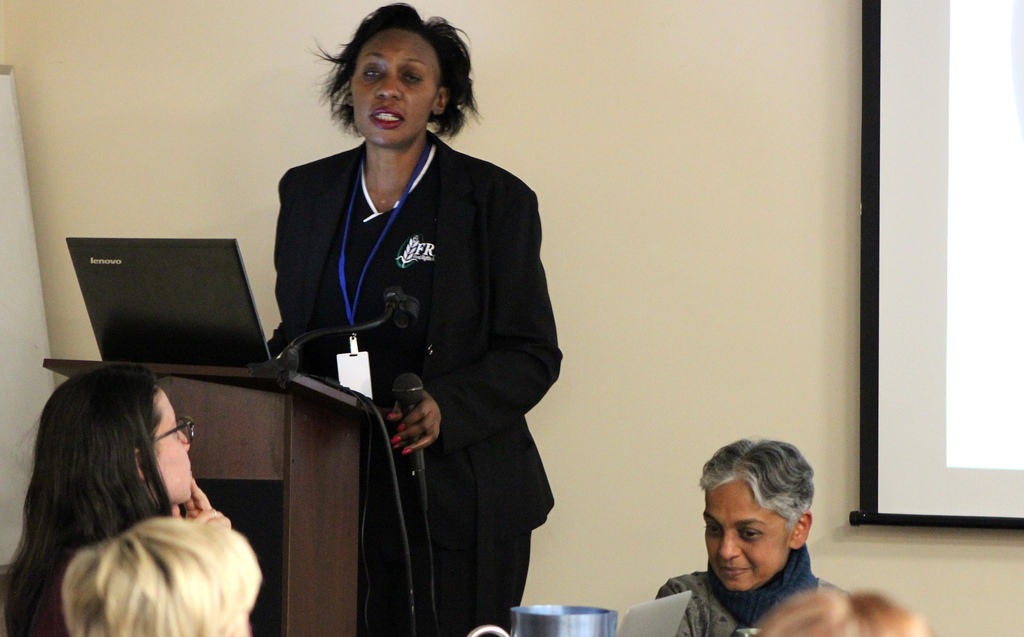
KAMPALA – Parliament this week passed the Genetic Engineering Regulatory Act 2018 with amendments.
This replaces the National Bio-Technology and Bio-Safety Bill of 2012.
The Bill sets a lifetime jail sentence for any scientist or person who misuses the genetically engineered material (GMO) to harm people, plants and the environment
The strict liability is one of the key clauses of this act, meaning those who own a patent of the technology will be strictly held liable.
These clauses and many others have since been contested by scientists.
Clet Wandui, the Director of Tropical Institute of Development Innovations (TRIDI), criticizes some of the clauses that seek to imprison anyone including farmers and scientists for any intended and unintended adverse effects of a product of Genetic Engineering.
“Coming from the view of a scientist, I think we have a few clauses in the Act that do not qualify for a good law. I have a problem with the strict liability clause in the GMO Act,” he said while reacting to parliament’s passing of the bill.
“With science, regulate the science for us to ensure what we are developing is safe to humans and that is the kind of law we wanted but in this case, we have a law that restricts us,” added Wadui.
This was after the Parliamentary Committee on Science, Technology, and Innovation accepted and revised President Yoweri Museveni’s earlier objections to provisions of the National Biotechnology and Bio-safety Bill.
The bill will now provide a regulatory framework for safe development and application of biotechnology and release of (GMOs). The bill was first passed by Parliament on October 4, 2017, but rejected by President saying it had a lot of shortfalls.
With the bill passed, a section of scientists are jubilating and congratulating the country for what they have termed as a long-lasting solution for starvation.

Agnes Kirabo, the Executive Director of Food Rights Alliance (FRA), said “my prayer is that we give an opportunity for this instrument to be tried out. The fact is we are gifted by nature; our biodiversity is very rich. Anything that is around our farming system, anything that is around our agricultural system causes for vested interests. Clet [Madui] can say there are bad clauses in the Act but they are the ones I am celebrating.”
Proponents of the bill argue that GMOs have the potential to boost food, fuel and fibre production, which they say will accelerate economic growth and foreign exchange earnings.
Mr Abraham Kaggwa, an expert in food technology, nutrition and bio-engineering rubbished reports by some critics that GMOs are unhealthy.
He said they should be embraced since they could help in reducing starvation when it is reviewed in the right way
“GMO foods are perfectly healthy and the technology has the possibility to reduce starvation and malnutrition,” he said.
“It is disappointing that people have a negative view [on GMO].”
Opponents of the bill, however, argue that since technology comes from developed countries, there are varied interests which maybe veiled with ill intentions.
Biotechnology is any technique that uses living organisms or substances from living organisms to make or modify a product, improve plant, animal breeds or micro-organisms for specific purposes while biosafety is the safe development, transfer, application, and use of biotechnology and its products.
Museveni, in a letter to Speaker Rebecca Kadaga dated December 21, 2017, cited reasons why the bill had to be reconsidered by parliament.
Professor Charles Muyanja, a lecturer at the Department of Food Technology and Human Nutrition at Makerere University and one of the proponents of GMO in Uganda, told this reporter that genetic foods are the way to go given the increasing country’s population.
“You can’t avoid GMOs, I have used them, I have eaten them, nothing has ever happened to me,” Prof. Muyanja said, urging civil societies to visit countries like Spain which he said is the largest producer of such foods.
He, however, warned that if not well managed, they (GMOs) can become catastrophic to the environment and peoples’ health.
The Food and Agriculture Organization of the United Nations suggested that GMO crops and other genetic modification sources may allow farmers to produce more nutritious food. For example, rice, which feeds 50% of the world’s population, could be genetically modified to have more vitamin A to reduce vitamin deficiency in the developing world.
It’s true that GMO products could potentially have these benefits, but the Office of Science at the U.S. Department of Energy also listed some negative effects of GMOs.
Because scientists mix genes from different foods together in order to make genetically modified foods, it can lead to allergic reactions and unintended side effects. As an example, soybeans were genetically engineered in 1996 to have the same proteins as Brazil nuts. Thankfully, researchers realized that these soybeans had the same allergens as the nuts, so they were not released to the public.
In addition to allergy problems, the modifications in food could also affect the effectiveness of antibiotics, making it more difficult to treat infections and illnesses in the future.
But genetically engineered crops are more resistant to pesticides, which allow farmers to use more of these chemicals on the land.
Scientists argue, the result could be polluted bodies of water, due to runoff, and damaged the soil.
On health, in addition to allergies and resistance to antibiotics, although research has been limited on the long-term effects of GMOs and other genetic modification sources on human health, several animal studies suggest that genetically engineered foods may come with a long list of health concerns.
In 2009 the American Academy of Environmental Medicine (AAEM) issued an opinion that physicians should advise their patients to avoid GMOs in food.
Several animal studies found that GMO foods are linked to immune system problems, infertility, issues with insulin regulation, accelerated ageing, and concerning changes in major organs.
Researchers have additional concerns about genetically modified foods. They warn that GMOs could lead to unpredictable and hard-to-detect side effects. Some examples include novel allergies, new diseases, and nutritional deficits.
The cause of these health issues relates to the genetic manipulation of plants, including soybeans, corn, and canola. Geneticists insert foreign genes into these plants, such as bacteria and viruses, to change certain aspects of the plant. However, these foreign genes have never been in the human food supply, so their effects are uncertain and potentially dangerous.





